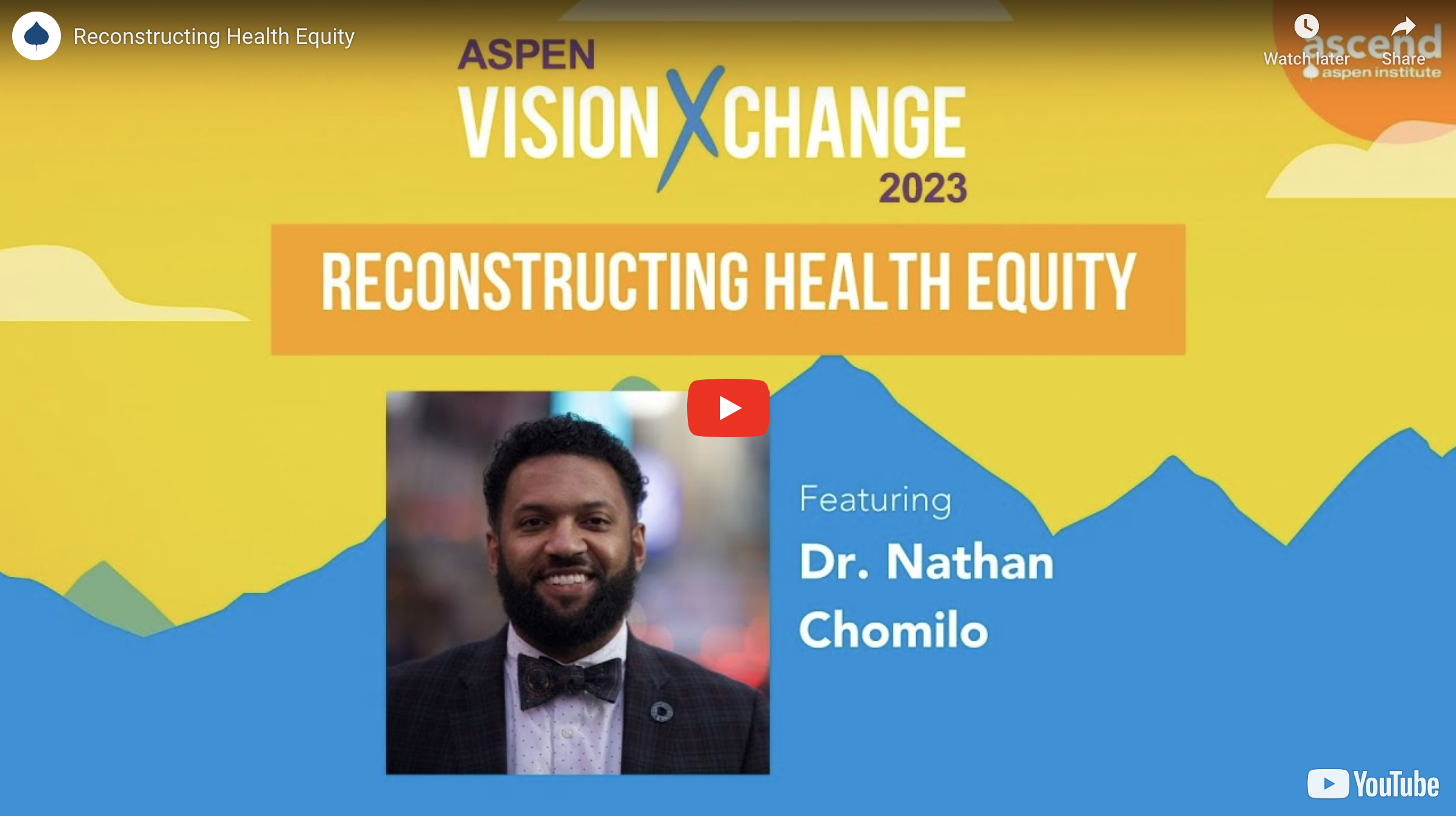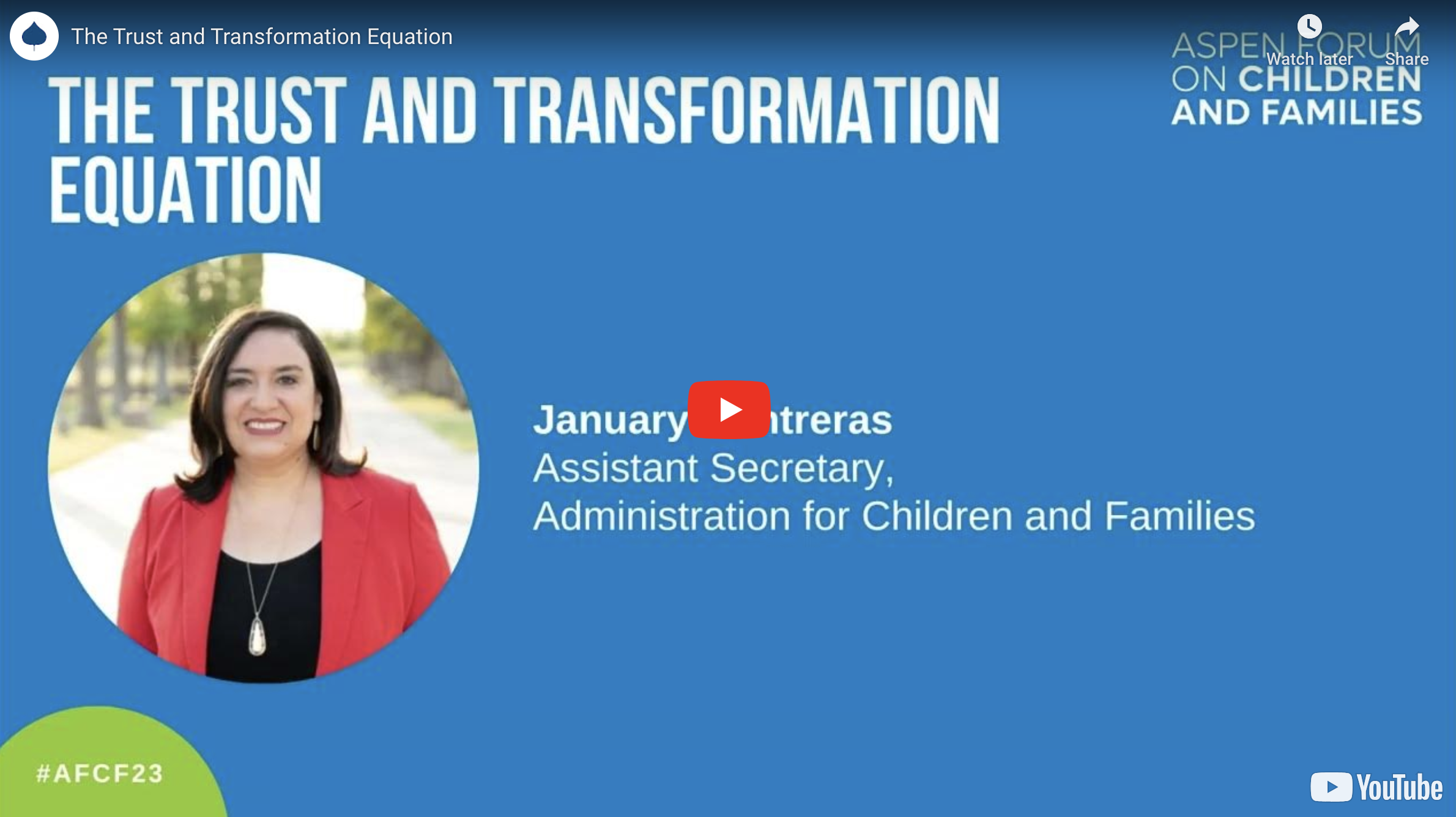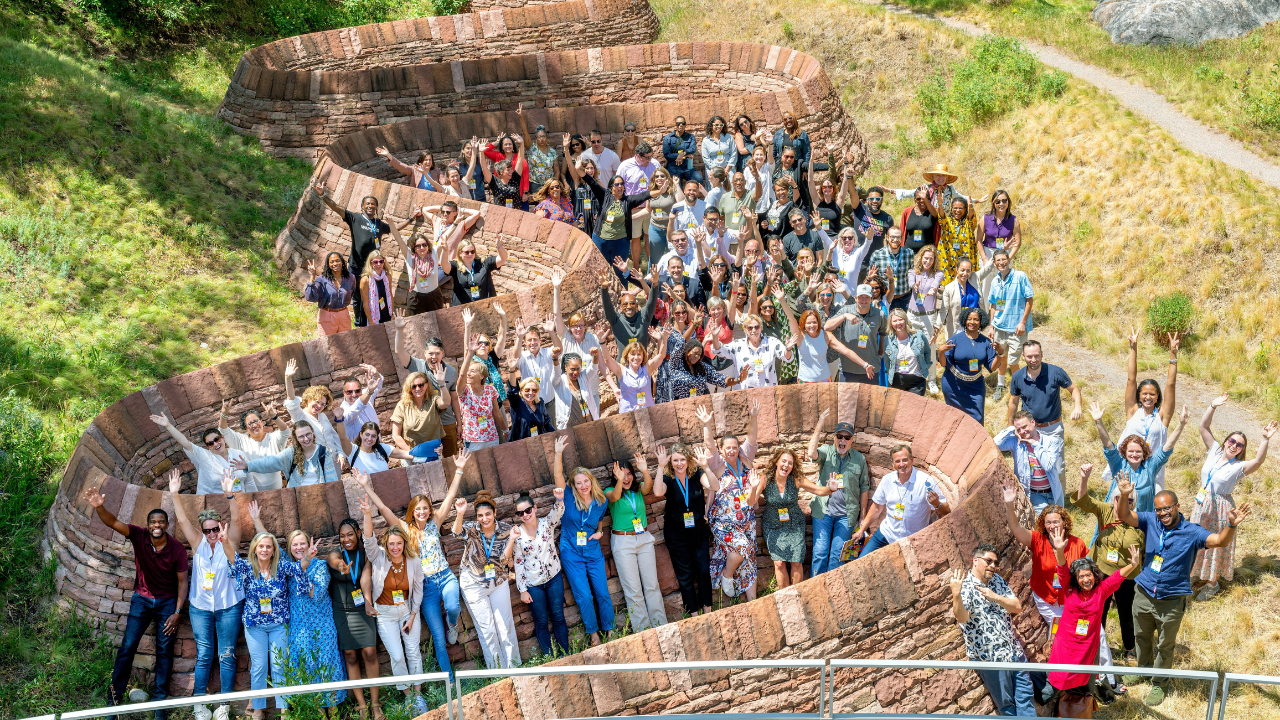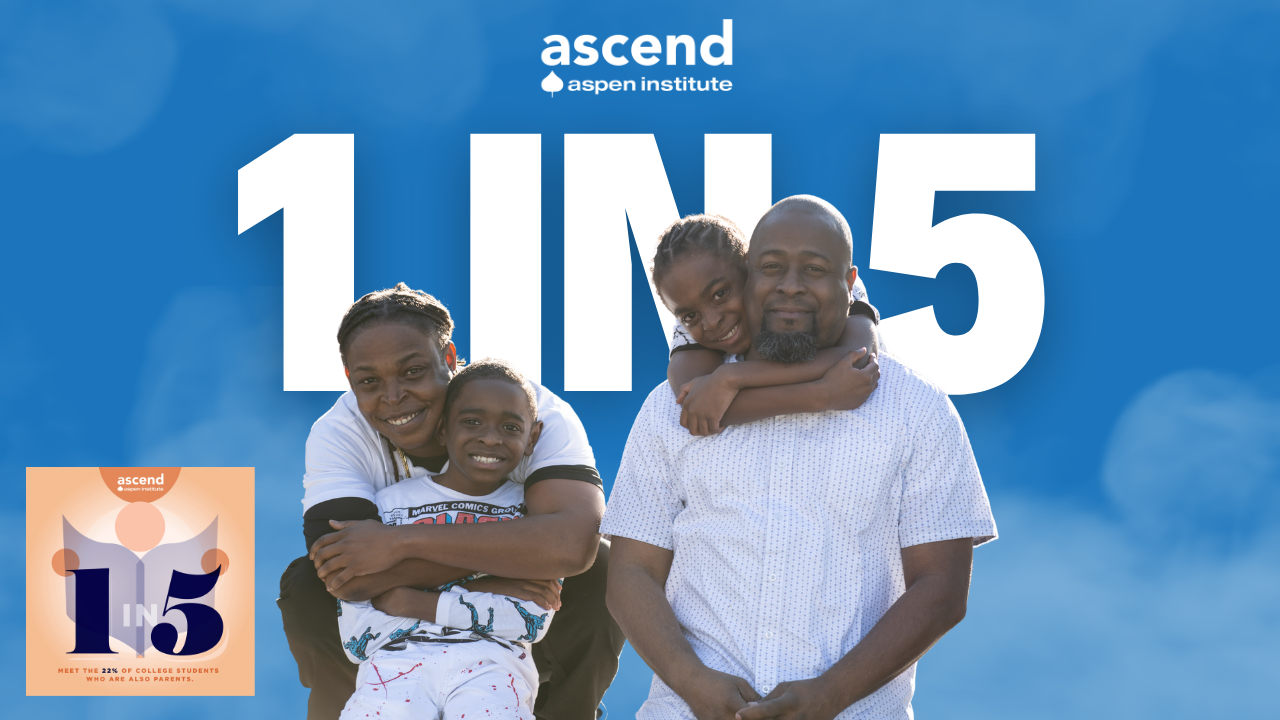Inside-Outside Magic: How to Weave Lived Experience into Policymaking
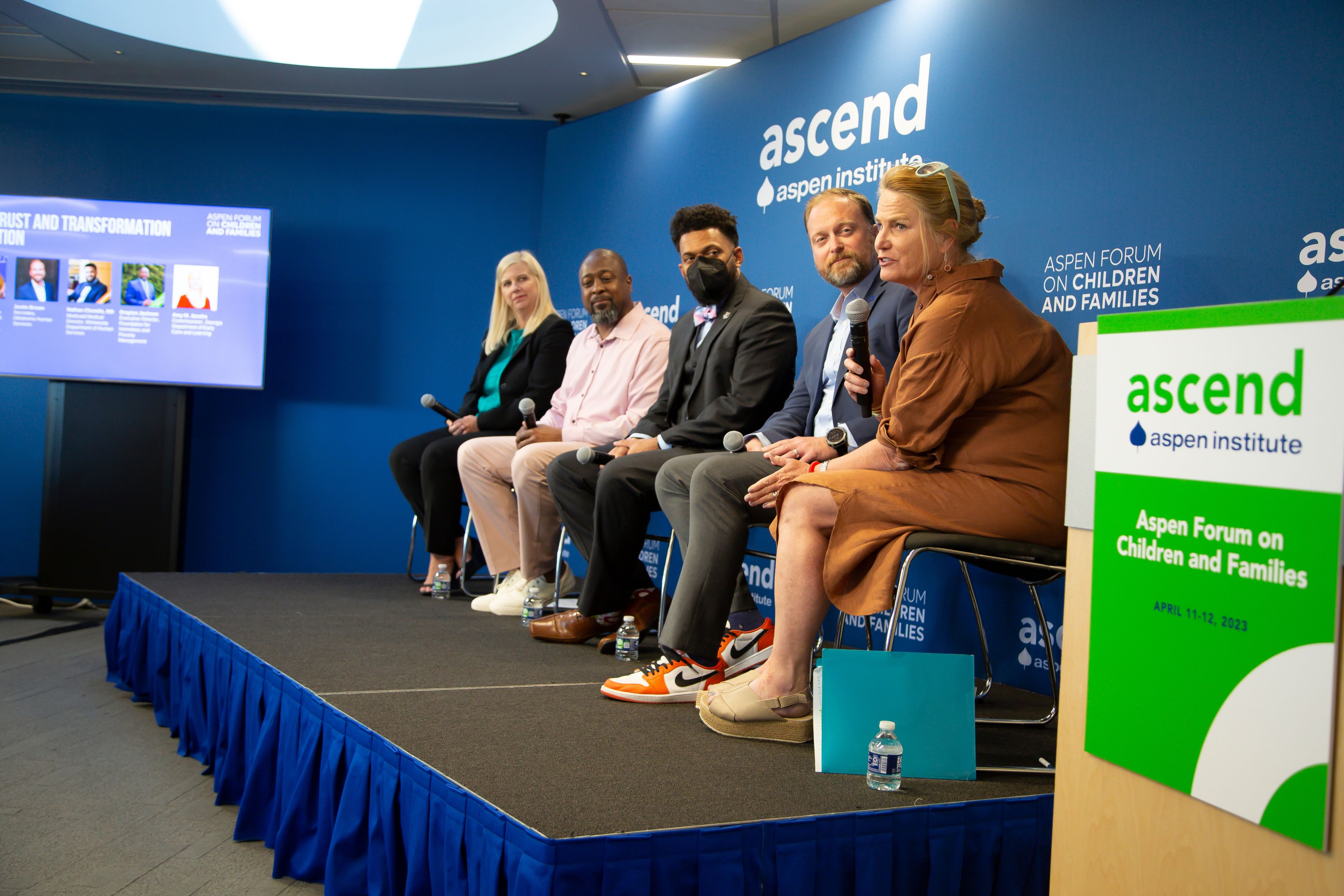
Equitable and effective government policies come from legislators who build trust and collaborate with communities. At the 2023 Aspen Forum on Children and Families, I moderated a powerful session during which we talked about family voice, trust, and transformation. How can policy become more community-designed? What does trust look like when government leaders and human services teams collaborate with communities?
I’m in awe of how leaders across the country — in states as diverse as Georgia, New Jersey, Oklahoma, Minnesota, and Washington — are successfully incorporating recommendations from families into policy. What’s their secret? Well, a belief in the power of family and community voice and a kind of “inside-outside” magic. A kind of magic that happens when state leaders let real people influence policy. After reading the success stories below, I hope you’ll be more informed and inspired to incorporate family voices into your own work.
1. The Statewide Listening Tour
One of the most effective ways to learn about the challenges, history, and hopes of communities is by embarking on a listening tour, which is where policymakers engage directly with people they serve in a series of meetings. This tactic allows policymakers to hear immediate, honest feedback, and lets community members ask questions and share perspectives that might not otherwise reach state-level leaders.
Why do they work? The group setting of a listening tour is key, because local residents more often speak freely if they’re supported and surrounded by neighbors and peers.
Listening Tour Success Story:
Spotlight on New Jersey
“As a servant-leader, you have to engage in active listening and appreciate everyone's contributions to the conversation,” explains 2022 Ascend Fellow Christine Norbut Beyer. In her role as New Jersey’s Commissioner of Children and Families, Christine has been actively listening since 2018, when she and her team embarked the first of many listening tours, consisting of 26 meetings with nearly 700 residents around the state.
The result of those meetings and the many meetings they’ve had in subsequent years, Christine says, is “a total transformation journey. It has had a cascading policy effect on the department… An entire reimagining and realignment.” In addition to policy changes and legislation advancement, the tours sparked the creation of a diverse array of services, including an Office of Family Voice, an Office of Housing, and committees focused on youth and fatherhood.
“When you embark on a listening tour, it isn't a single tour or a single set of tours,” Christine says. “It's developing a collaborative, open mindset, being willing to hear about what works and what doesn't as a system… And then going out and doing that again.”
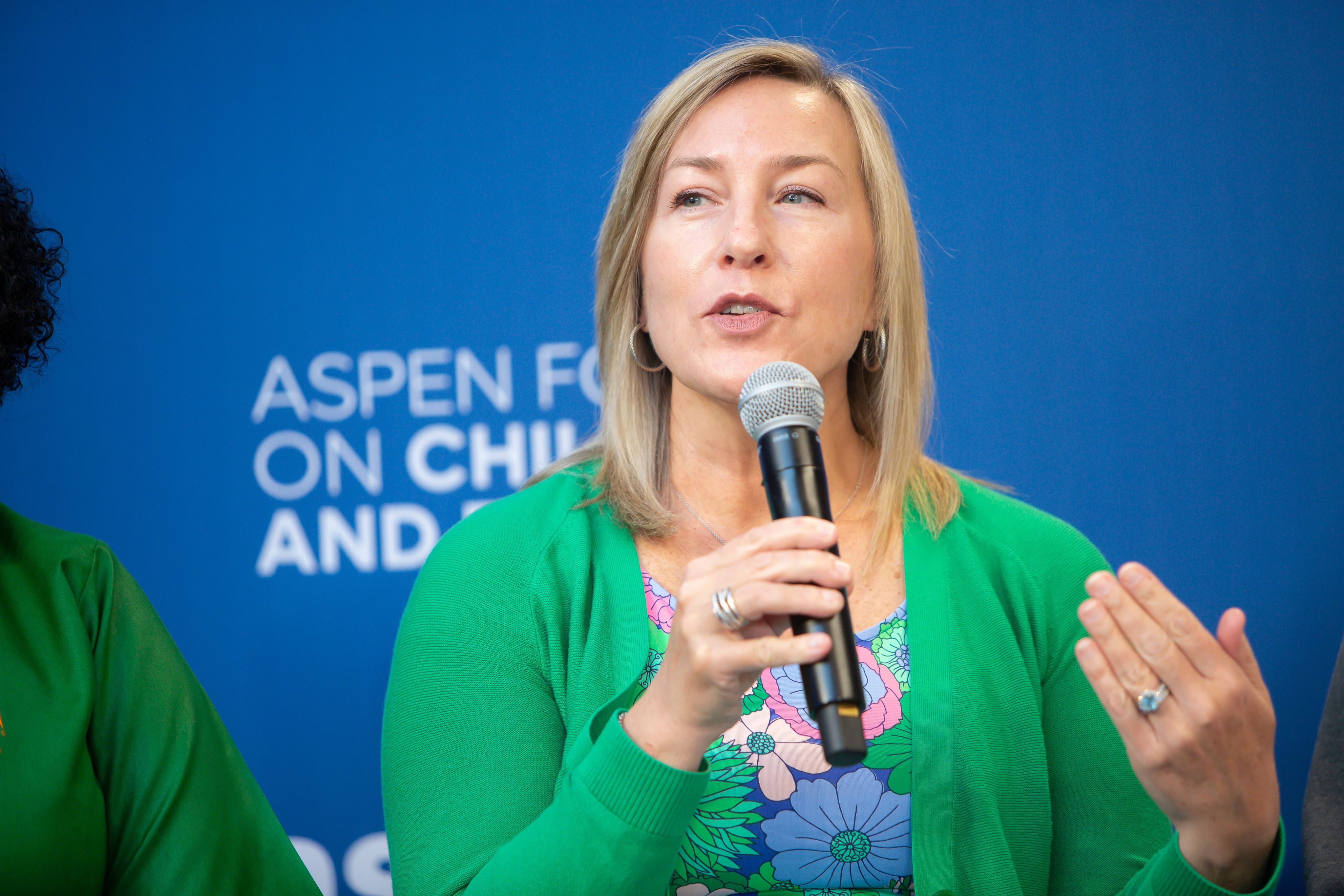
2. The Family Policy Council
Another powerful collaboration tool is a “family policy council” — where a group of people with lived expertise engages in dialogue with leaders and researchers about issues relevant to their community. Members of a group like this should, as a rule, be financially compensated for their time and expertise. Sometimes these groups go by different names – like advisory board, steering committee, or working group – but they all aim to increase equity and elevate recommendations from families.
Why do they work? Family councils and advisory boards enable local residents to provide an ongoing, indispensable line of communication between local officials and residents.
Family Policy Council Success Story:
Spotlight on Washington
In Washington state, Ascend Parent Adviser Drayton Jackson knows first-hand how much of an impact community members can have on state and agency leaders. As the co-chair of Governor Jay Inslee’s Poverty Reduction Work Group and a major contributor to Washington’s 10-Year Plan to Dismantle Poverty & Inequality, Drayton represents a steering committee of people with lived experience in poverty that work in collaboration with state leaders and across sectors to ensure the state makes progress.
This decade-long commitment from state leadership proved crucial to establishing trust and making progress. “It took us so long to get trust,” Drayton says of his committee’s relationship with policymakers and agency leaders. “They ‘listened’ to us, but they didn’t put it into action [at first].” Fast forward six years, and the partnership between leaders and the Poverty Reduction Work Group is thriving: Since 2021, when their plan was originally submitted, Washington has invested three billion dollars to reduce poverty and build toward economic justice and taken action on over 100 policy, and program initiatives. “You say ‘Give them the keys.’ Oh, they gave us the keys. And we haven’t given them back,” Drayton says with a smile.
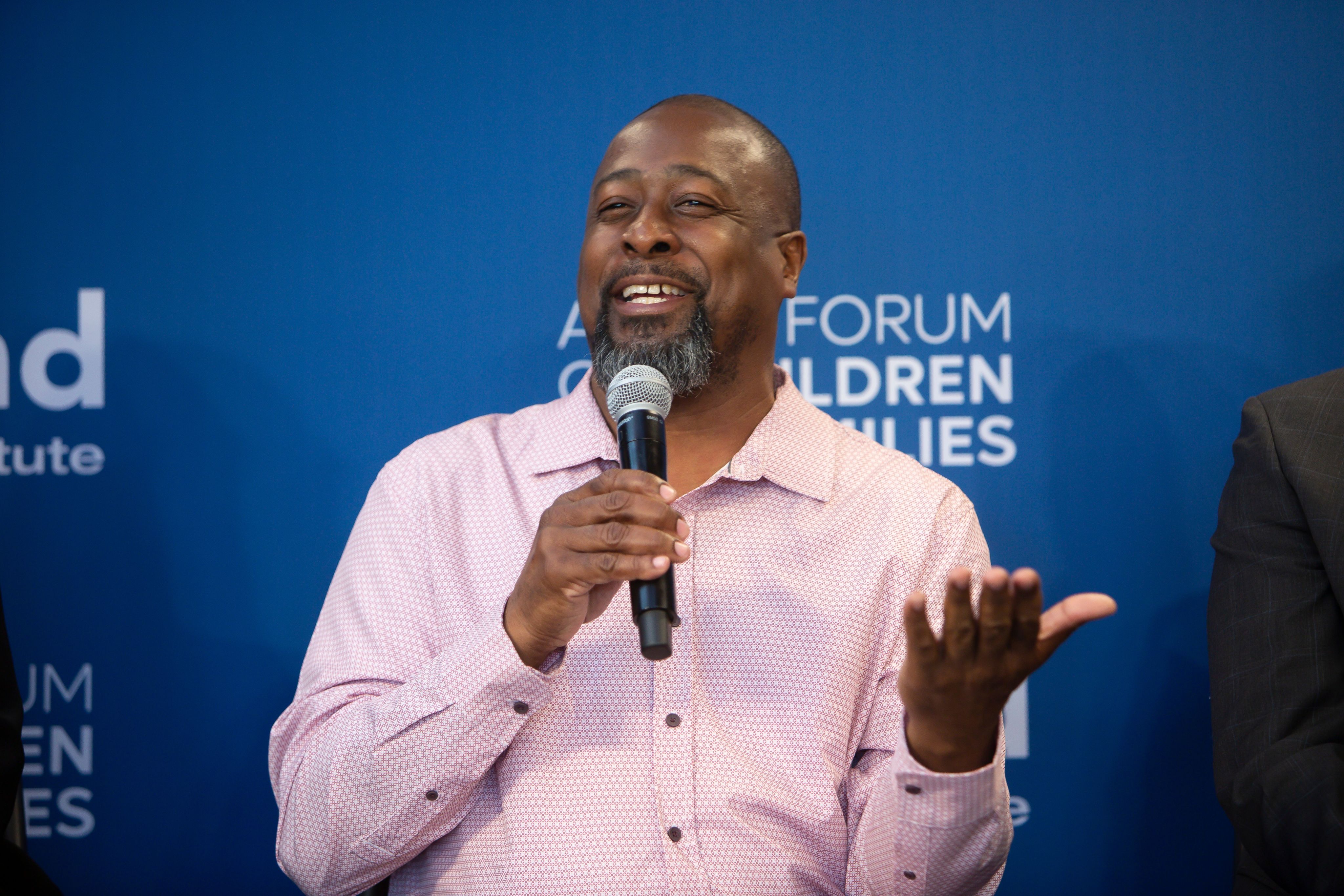
3. Stakeholder Engagement Meetings
Sometimes timing or capacity prevents leaders from launching a state-wide listening tour or creating a family voice council. But even then, policymakers can leverage a tactic that’s always available on our journey toward helping families thrive: The act of listening. Listening to parents, caregivers, and families on a regular basis. Stakeholder engagement meetings, informational workshops, social media, and convenings at community centers or places of worship are just a few ways this can come to life.
Why they work: Even if the method isn’t formalized like a listening tour or a family voice council, ongoing communication with parents is essential to effective two-generation (2Gen) policymaking. In order to help families access what they need, want, and deserve, policymakers must honor their expertise by truly listening.
Stakeholder Engagement Success Story: Spotlight on Georgia
In Georgia, the state’s Department of Early Care and Learning (DECAL) serves approximately 70,000 children each year. But until recently the program’s structure prevented staff from working directly with families. That finally changed in 2017, when DECAL conducted a series of stakeholder engagement meetings with families and child care providers throughout the state. “It transformed the way we work. We started talking to families all over Georgia. We asked, How can we make [our childcare subsidy program] different and better?” commissioner Amy Jacobs recalls.
Those meetings helped pave a new path for how DECAL communicates with community members, and led to concrete policy changes that advance family economic mobility, including the establishment of student parents as a priority group for secondary education tuition subsidies, and the creation of a statewide partnership with Georgia’s technical college system. It also had long-term effects that extended far beyond policy. “It’s more of our culture now,” Amy said, “where anytime we make a change to a program or think about a policy, [we consider] Is this good for families?”
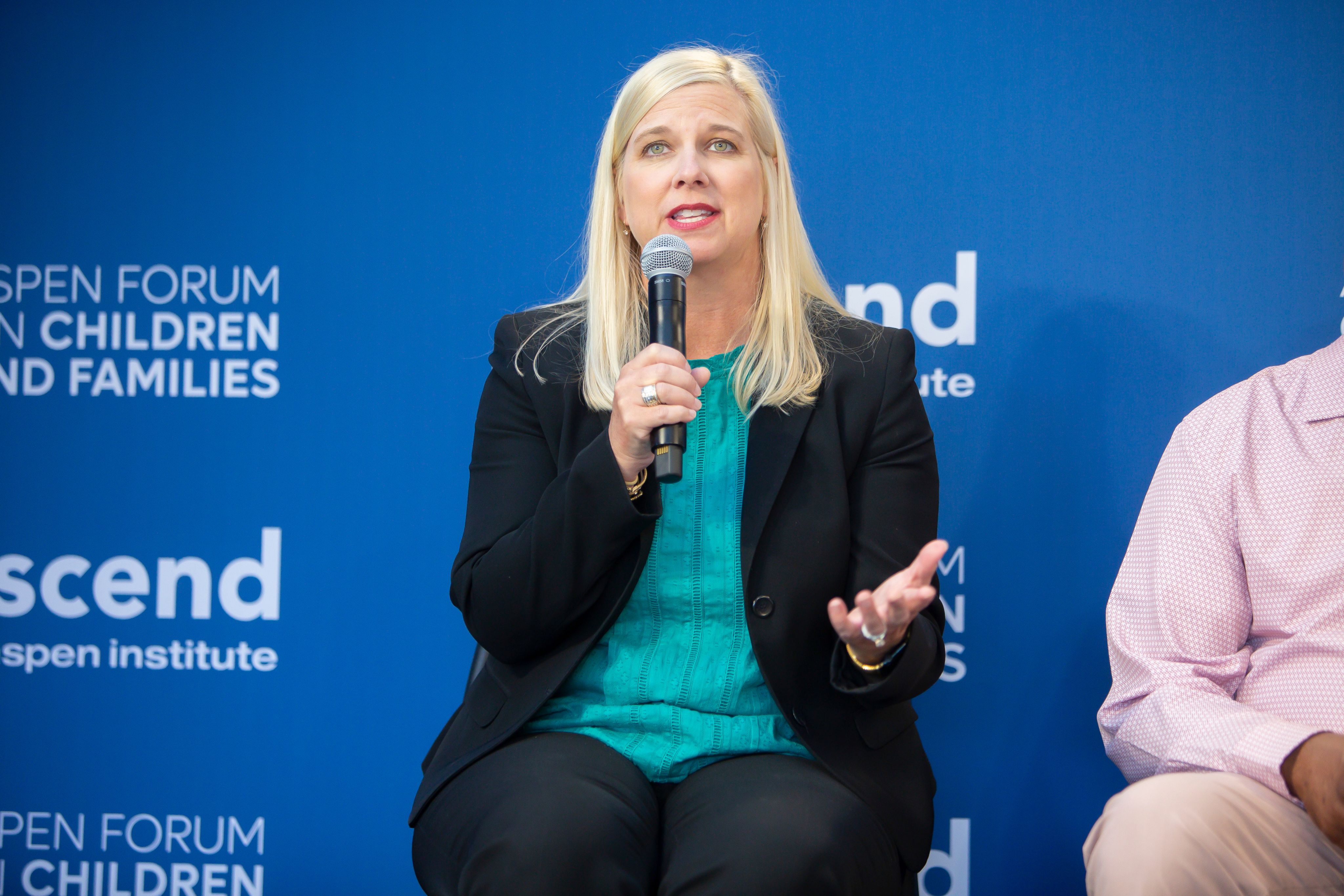
Stakeholder Engagement Success Story: Spotlight on Oklahoma
During his time as director of Oklahoma’s Department of Human Services, from 2019 to 2023, Justin Brown believed so deeply in the importance of family voice that he structured the 6,000-person agency in a way that encouraged staff to engage directly with families at multiple touchpoints. As Justin reminded us, “We want people to not need our services anymore — we’re here to solve problems for families, not for ourselves.”
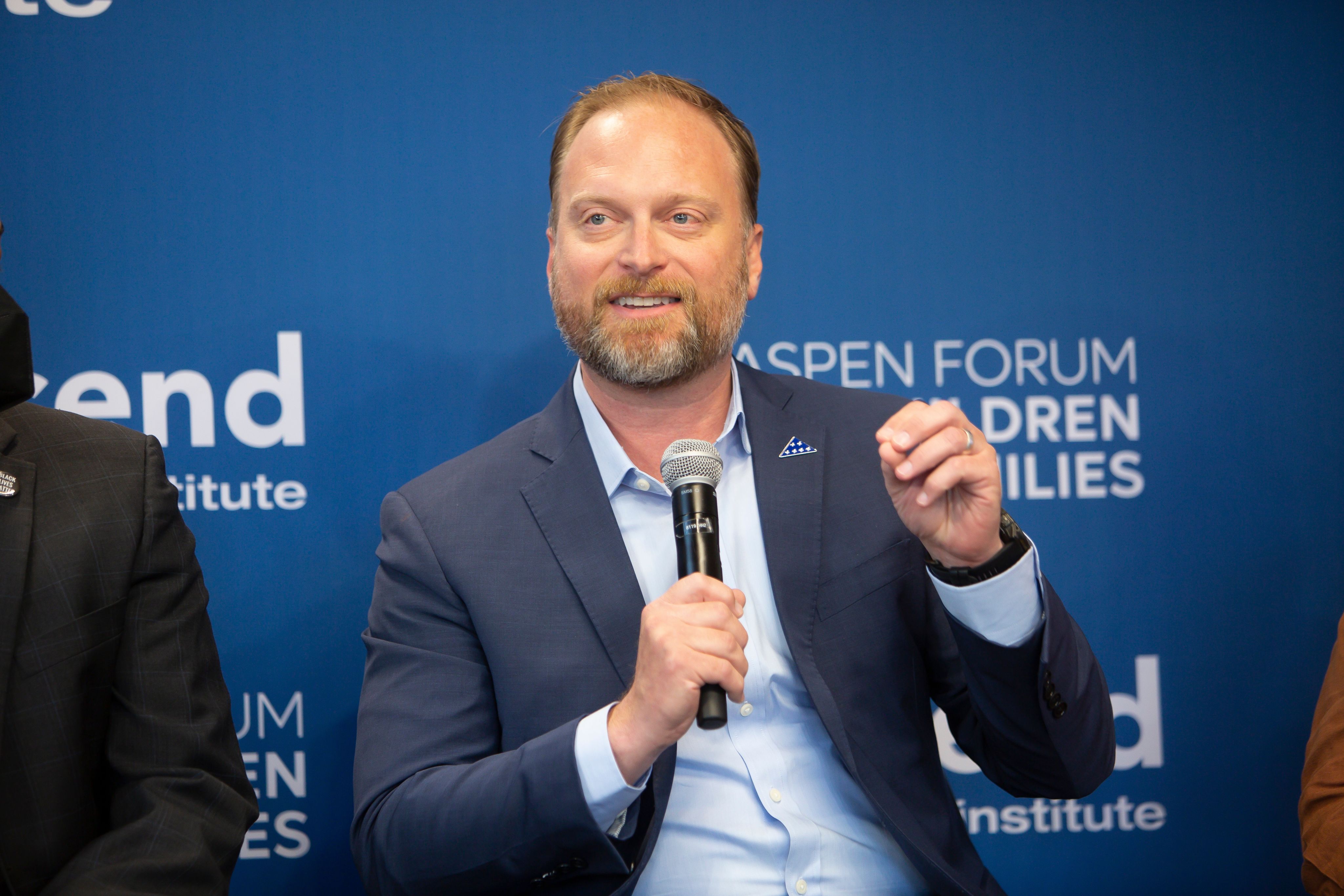
Stakeholder Engagement Success Story: Spotlight on Minnesota
As director of Minnesota’s Medicaid program, 2022 Ascend Fellow Nathan Chomilo is always seeking feedback from parents in his trailblazing work. “How can we be more accountable to communities that we serve that are disproportionately impacted by structural racism?” Nathan asked during our session, while discussing how he and his team achieved successes including the expansion of Medicaid eligibility. “[After] getting feedback from the community, we go back to our policy staff and ask, What are the policies we can act on, short-term, medium-term, long-term?” Nathan explained. “Then [we go] back to the community and say, These are the calls-to-action that we can act on. Does this capture what you shared with us?”
To get all families onto the pathways to prosperity, we must honor the experiences and ideas of parents and caregivers as a rule, not as an exception. It’s up to leaders to combine their positional power with communities’ lived expertise to change systems so that children and families can thrive.
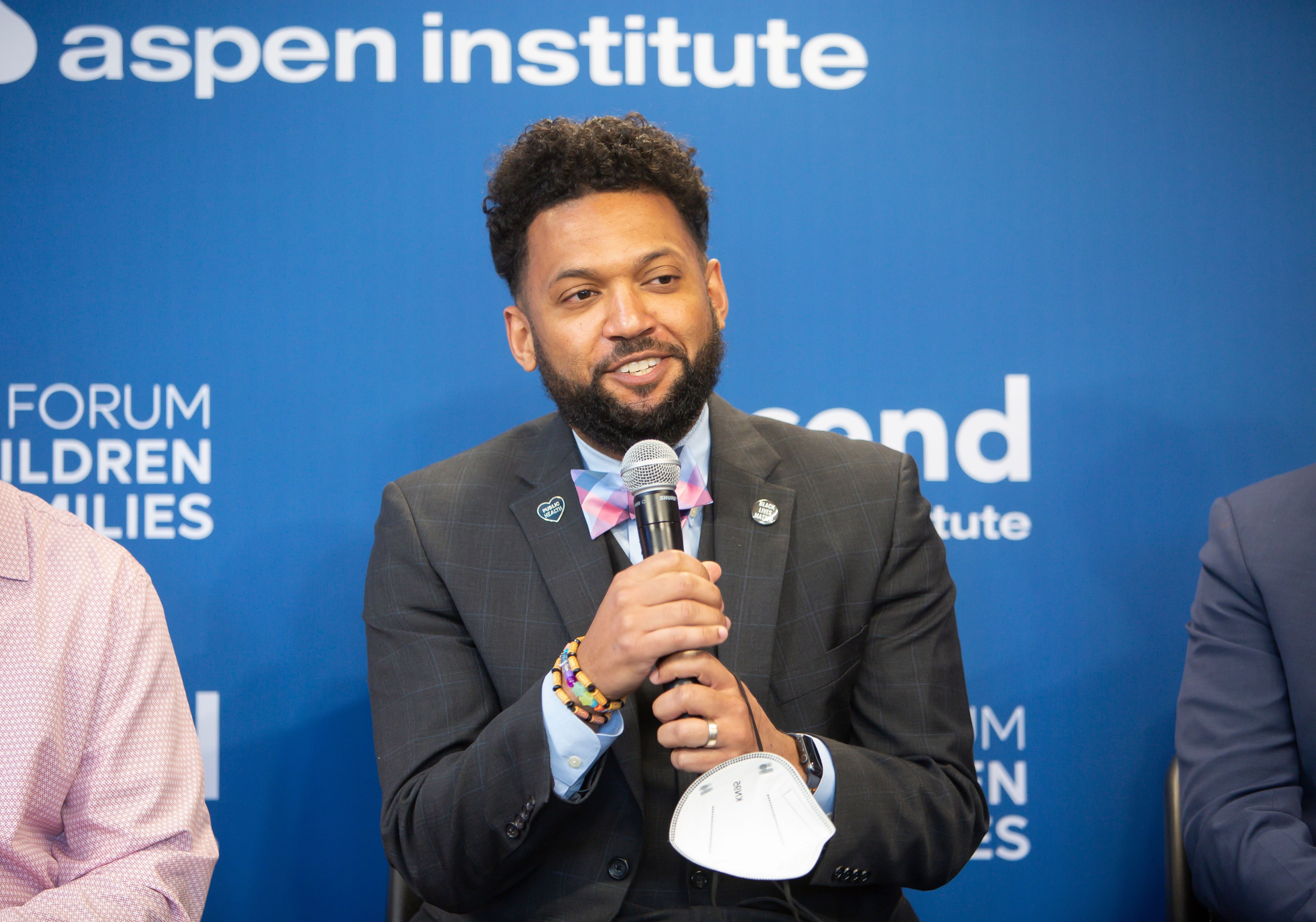
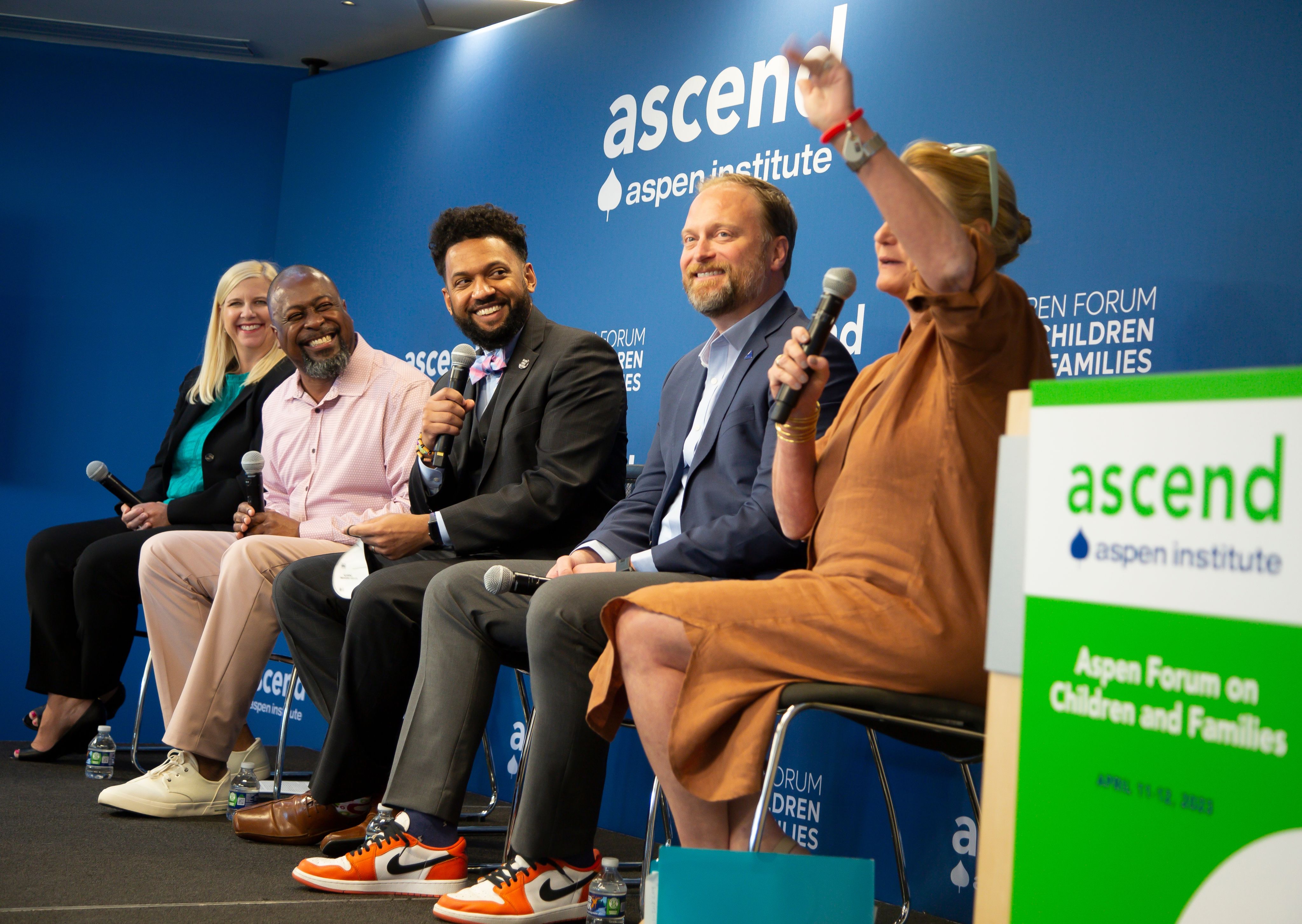
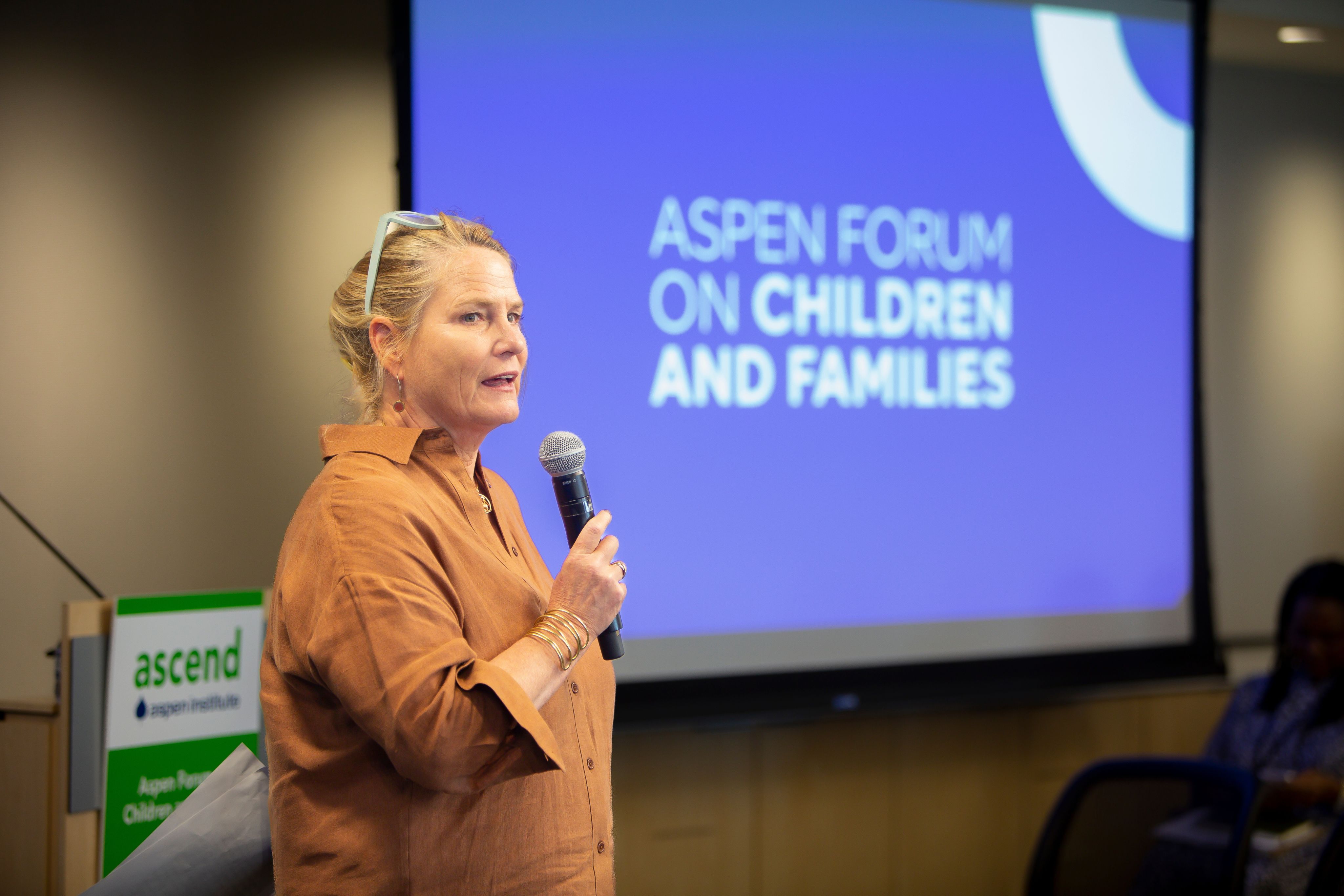
Interested in learning more about trust-driven 2Gen policymaking?
Watch the Trust & Transformation session from 2023 Aspen Forum on Children and Families.
